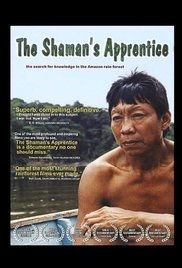Topic 12: Methods of Cultural Anthropology
1/10
There's no tags or description
Looks like no tags are added yet.
Name | Mastery | Learn | Test | Matching | Spaced |
|---|
No study sessions yet.
11 Terms
Learning Objectives
What is ethnographic fieldwork?
What are cultural anthropologists’ two major techniques for collecting data during ethnographic fieldwork?
What are the two major approaches that cultural anthropologists use for interpreting data?
What is the Code of Ethics for anthropological research?
What Is Ethnographic Fieldwork?
Cultural Anthropology studies variation in the beliefs and behavior of members of different human groups.
• Focusing on contemporary or historically recent people
What Is Ethnographic Fieldwork?
Ethnographic Fieldwork: an extended period during which a cultural anthropologist studies a community or culture by closely observing and involving with the local people
Ethnographer: the cultural anthropologist doing fieldwork
Ethnography: the research product based on the fieldwork (in the form of a book, article, or film).
An example of ethnography

Fieldwork experience has become the rite of passage for all cultural anthropologists
You cant become an anthropologist until you actually do fieldwork (its an American tradition)
Techniques of Collecting Field Data
Participant observation
Interviewing
The genealogical method
Gathering data from key consultants
Life history
Longitudinal research
Survey
Participant Observation:
Study and record the details of daily life while taking part in community life. you are an outsider
Interviewing:
Talk to people and ask questions
What Can Anthropologists Gain through Firsthand Fieldwork?
A holistic view that helps understand the interconnections among social phenomena
A bottom-up view of social processes/phenomena that complements the top-down view focused on by most of the media and scholars
Approaches for Interpreting Local Culture
Two General Approaches
Emic perspective: seeing things from a perspective of the local people—a cultural insider’s view of how things are
what it means
(Christmas —> birth of the Lord Jesus Christ)
Etic perspective: evaluating the local views using categories and interpretations of the anthropologist—an outsider’s view
what you see
(Christmas —> christmas trees, colorful lights, gift giving, Santa Clause, elves)
The Code of Ethics
(American Anthropological Association)
Do no harm.
Be open and honest regarding your work.
Obtain informed consent and necessary permissions.
- Informed consent: agreement to take part in the research, after being fully informed about its nature, procedures, and possible impacts.
Weigh competing ethical obligations due collaborators and affected parties.
Make your results accessible.
Protect and preserve your records.
Maintain respectful and ethical professional relationships
The Hallmark and Strength of Cultural Anthropology
Going there, wherever there may be;
To study them, whoever they may be